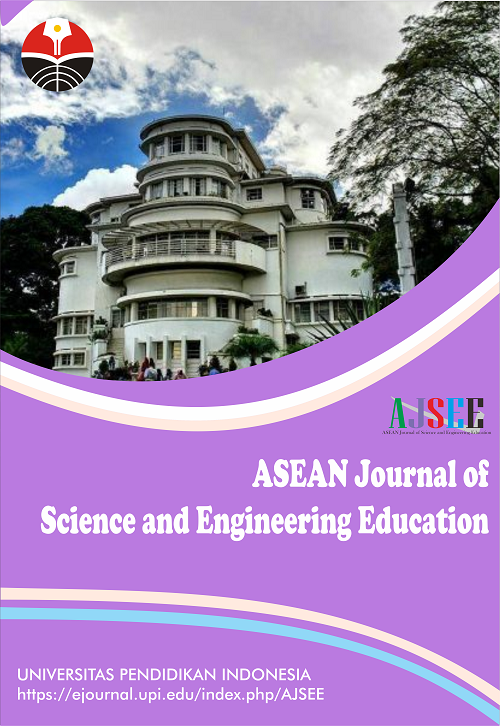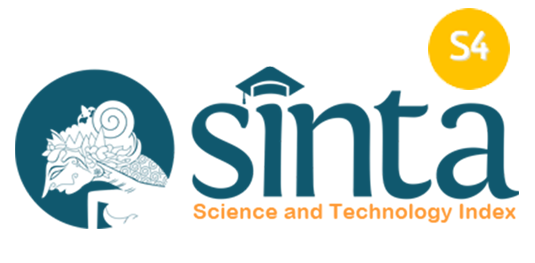Effects of Geogebra Instruction and Team-Based Learning Strategy on Senior Secondary School Students’ Achievement in Mathematics
Abstract
The purpose of this study was to investigate the effects of GeoGebra instruction and Team-based learning on senior secondary school students’ achievement in mathematics. The study adopted a quasi-experimental pre-test, post-test, non-equivalent control group research design. The sample consisted of 183 students (91 males and 92 females) from three intact classes of three senior secondary schools from Education District V of Lagos State, Nigeria. Simple random sampling technique was used to assign the three intact classes to experimental group I, experimental group II and the control group. Data collected were analyzed using mean, standard deviation, and Analysis of Covariance (ANCOVA). Results revealed that there was a significant main effect of treatment on students’ achievement in mathematics in favour of GeoGebra instruction and team-based learning. Gender did not significantly influence students’ achievement mathematics, and there was no significant interaction effect of treatment and gender on achievement in mathematics. The study concluded that the GGI and TBL experimental treatments had better effect on students’ achievement in mathematics than the CLM.
Keywords
Full Text:
PDFReferences
Adeniyi, C. O. and Awofala, A. O. A. (2023). Effect of just-in-time teaching strategy on post basic-school pupils’ achievement in mathematics in Lagos State. Journal of Curriculum and Instruction, 14(1), 203-212.
Ajai, J. T, Imoko, B. I., and O’kwu, E. I. (2014). Comparison of the learning effectiveness of problem-based learning (PBL) and conventional method of teaching algebra. Journal of Education and Practice, 6(2), 84-104.
Ajai, J. T. and Imoko, B. I. (2015). Gender differences in mathematics achievement and retention scores: A case of problem-based learning method. International Journal of Research in Education and Science, 1(1), 45- 50.
Akinsola, M. K. and Awofala, A. O. A. (2009). Effects of personalization of instruction on students’ achievement and self-efficacy in mathematics word problems. International Journal of Mathematical Education in Science and Technology, 40(3), 389 – 404.
Aliyu, J. (2019). Effect of geoGebra and paper/pencil to the teaching and learning of simultaneous linear equation in some selected junior secondary schools at Zaria, Kaduna state of Nigeria. The Journal of Mathematical Association of Nigeria, 44(1), 158-165.
Alordiah, C. O., Akpadaka, G., and Oviogboda, C. O. (2015). The influence of gender, school location and socio-economic status on students’ academic achievement in mathematics. Journal of Education and Practice, 16(17), 130-136.
Ani, M. I., Obodo, A. C., Ikwueze, C. C., Festus, T. T. (2021). Effect of gender in basic science students’ academic achievement in secondary schools in Enugu education zone, Enugu state, Nigeria. Unizik Journal of Research and Policy Studies, 2(1), 9-14.
Arigbabu, A. A. and Mji, A. (2004). Is gender a factor on mathematics performance among Nigerian preservice teachers? Sex Roles: A Journal of Research, 51(2), 749-753.
Awofala, A. O. A, Fatade, A. O., and Ola-Oluwa, S. A. (2012). Achievement in cooperative and individualistic goal-structured junior secondary school mathematics classrooms in Nigeria International Journal of Mathematics Trends and Technology, 3(1), 7 - 12.
Awofala, A. O. A. (2008). Women and the learning of mathematics. African Journal of Historical Sciences in Education, 2(1), 195 – 213.
Awofala, A. O. A. (2011). Is gender a factor in mathematics performance among Nigerian senior secondary students with varying school organization and location? International Journal of Mathematics Trends and Technology, 2(3), 17-21.
Awofala, A. O. A. (2017). Assessing senior secondary school students’ mathematical proficiency as related to gender and performance in mathematics in Nigeria. International Journal of Research in Education and Science, 3(2), 488-502.
Awofala, A. O. A. and Anyikwa, B. E. (2014). Assessing adult learners’ numeracy as related to gender and performance in arithmetic. Journal of New Approaches in Educational Research, 3(2), 83-92.
Awofala, A. O. A. and Lawal, R. F. (2022). The relationship between critical thinking skills and quantitative reasoning among junior secondary school students in Nigeria. Jurnal Pendidikan Matematika (Kudus), 5(1), 1-16.
Awofala, A. O. A. and Lawani, A. O. (2020a). Increasing mathematics achievement of senior secondary school students through differentiated instruction. Journal of Educational Sciences, 4(1), 1-19.
Awofala, A. O. A. and Lawani, A. O. (2020b). Examining the efficacy of co-operative learning strategy on undergraduate students’ achievement in mathematics. International Journal of Pedagogy and Teacher Education, 4(1), 59-82.
Awofala, A. O. A. and Uwajuwa, N. (2023). Computer assisted instruction and mastery learning strategy as determinants of senior secondary school students’ achievement in mathematics. Nigerian Online Journal of Educational Sciences and Technology, 5(1), 67-79.
Awofala, A. O. A., Akinoso, S. O., and Adebayo, A. (2022). Exploring preservice mathematics and social studies teachers’ internet addiction as connected with gender and grade point average. Pedacta, 12(1), 1-6.
Awofala, A. O. A., and Agbolade, F. O. O. (2024). Effect of peer-tutoring strategy on senior secondary school students’ achievement in mathematics. ASEAN Journal for Science Education, 3(1), 1-12.
Awofala, A. O. A., and Akinoso, S. O. (2024). Altering students’ mindsets and enhancing engagement in mathematics in a problem-based learning. ASEAN Journal of Science and Engineering Education, 4(2), 193-210.
Awofala, A. O. A., Arigbabu, A. A. and Awofala, A. A. (2013). Effects of framing and team assisted individualised instructional strategies on senior secondary school students’ attitudes toward mathematics. Acta Didactica Napocensia, 6(1), 1 – 22.
Awofala, A. O. A., Ojo, O. T., Awofala, A. A. and Olabiyi, O. S. (2020). Is gender a factor in 21st century skills in education among future science, technology and mathematics (STM) teachers in Nigeria. Beder University Journal of Educational Sciences, 23, 39-69.
Berrett, D. (2012). How ‘flipping’the classroom can improve the traditional lecture. The Chronicle of Higher Education, 12(19), 1-3.
Bulut, M., Akcakın, H. U., Kaya, G., and Akcakın, V. (2016). The effects of GeoGebra on third grade primary students' academic achievement of fractions. Mathematics Education, 11(2), 327–335.
Burgess, A., McGregor, D., and Mellis, C. (2014). Applying established guidelines to team-based learning programs in medical schools: A systematic review. Academic Medicine, 89, 678–88.
Burgess, A., Haq, I., Bleasel, J., Roberts, C., Garsia, R., Randal, N., and Mellis, C. (2019). Team-based learning (TBL): A community of practice. BMC Medical Education, 19(1), 369.
Chinelo, B. O. (2020). The influence of gender on mathematics achievement of secondary school students in Bayelsa state. African Journal of Studies in Education, 14(2), 196-206.
Eze, T. I., Ezenwafor, J. I., and Obidile, I. J. (2016). Effects of problem-based teaching methods on students’ academic performance and retention in financial accounting in technical colleges in Anambra State. Scholars Journal of Arts, Humanities and Social Sciences, 4(6A), 643-639.
Fatade, A. O., Arigbabu, A. A. Mogari, D., and Awofala, A. O. A (2014). Investigating senior secondary school students’ beliefs about further mathematics in a problem-based learning context. Bulgarian Journal of Science and Education Policy, 8(1), 1-42.
Fatade, A. O., Nneji, L. M., Awofala, A. O. A., and Awofala, A. A. (2012). Mode of entry and gender as determinants of Nigerian pre-service teachers’ performance in degree mathematics and science courses. International Journal of Mathematics Trends and Technology, 3(3), 103-109.
Islahi, F. and Nasrin, A. (2019). Exploring teacher attitude towards information technology with a gender perspective. Contemporary Educational Technology, 10(1), 37-54.
Kesan, C and Caliskan, S. (2013). The effect of learning geometry topics of the 7th grade in primary education with dynamic geometer’s sketchpad geometry software for success and retention. Turkish Online Journal of Educational Technology, 12, 131-138.
Killian, M. and Bastas, H. (2015). The effects of team-based learning on students’ attitudes and students’ performances in introductory sociology classes. Journal of Scholarship of Teaching and Learning, 15(3).
Masri, R., Hiong, T. S., Tajudin, M., and Zamzamin, Z. Z. (2016). The effects of using GeoGebra teaching strategy in Malaysian secondary schools: A case study from Sibu, Sarawak. Geografia - Malaysian Journal of Society and Space, 12(7), 13–25.
Michaelsen, L. K. and Sweet, M. (2008). The essential elements of team‐based learning. New Directions for Teaching and Learning, 2008(116), 7-27.
Michaelsen, L. K., and Sweet, M. (2011). Team-based learning. New Directions for Teaching and Learning, 128(128), 41-51.
Olabiyi, O. S. and Awofala, A. O. A. (2019). Effect of co-operative learning strategy on senior secondary school students’ achievement in woodwork technology. Acta Didactica Napocensia, 12(2), 171-182.
Parmelee, D., Michaelsen, L. K., Cook, S., and Hudes, P. D. (2012). Team-based learning: A practical guide: AMEE guide no 65. Medical Teacher, 34, e275–e287.
DOI: https://doi.org/10.17509/ajsee.v5i1.82797
Refbacks
- There are currently no refbacks.
Copyright (c) 2025 Universitas Pendidikan Indonesia

This work is licensed under a Creative Commons Attribution-ShareAlike 4.0 International License.














